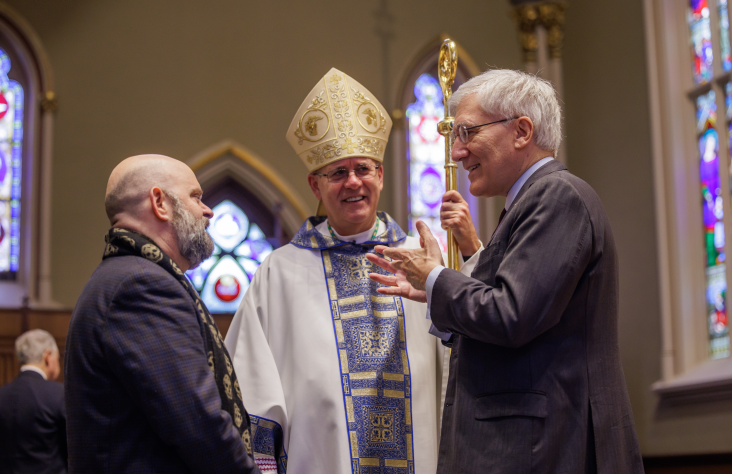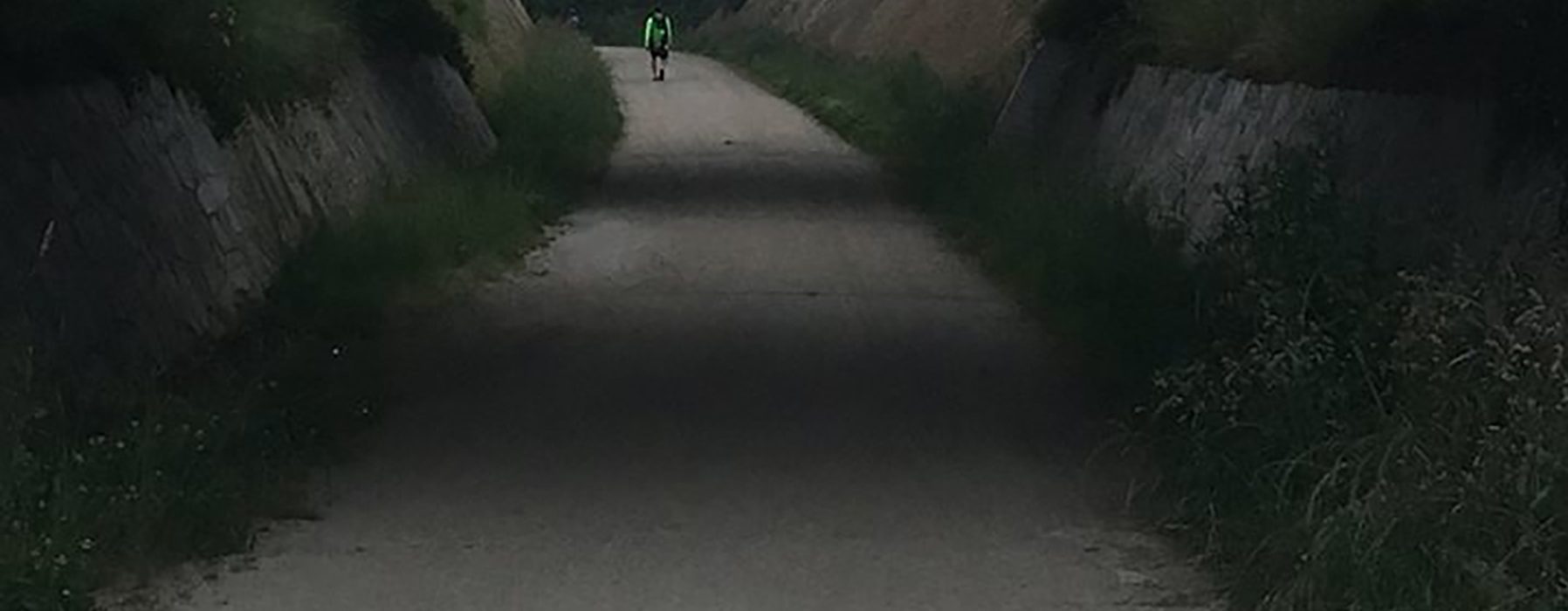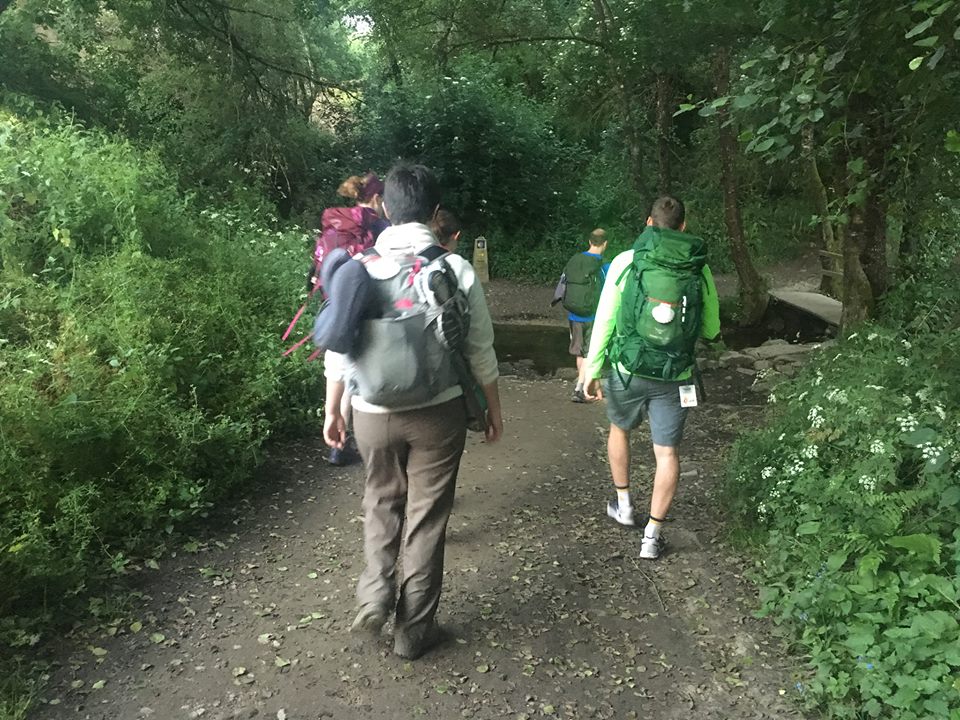July 10, 2018 // Diocese
Diocesan young adults travel the Camino
By Catherine Horvath and Niki Wilkes
From June 16-24, Verso Ministries helped 28 young adults from the Diocese of Fort Wayne-South Bend take the ultimate trip. El Camino de Santiago (also called the Way) is one of the Catholic Church’s most participated-in pilgrimages. Pilgrims can start wherever they like along its main routes, but everyone ends up in the Spanish city of Santiago de Compostela, where the remains of St. James the Greater rests in its cathedral.
This diocesan group decided to take a 118-kilometer route on the French Way, walking for five days from Sarria to the Santiago and gleaning many life-giving spiritual lessons along the way. We felt that the best way to describe our pilgrimage would be to explain how the journey helped all of us understand our faith.
Lean into suffering
Wilkes: The first thing I learned was, sometimes you have to lean into suffering. Everyone in the group had hurts and aches during the trip. But what many of us soon realized was that if you tried to be timid about it, you only prolonged your walk and therefore your pain. You had to walk into the pain so that you could get where you needed to go. What a fitting analogy for our walk toward God. Life gets you down, and sometimes it is not an option to take time to recover. You have to keep going forward, no matter how much you may want to stop. If you accept this and try to walk as normally as possible, you actually find that God gives you the strength to endure and leads you to a place of repose.
Stop to smell the roses
Horvath: On a pilgrimage like the Camino, it’s easy to focus on forging ahead and getting from one town to the next to beat the heat of the day or that blister on your foot. However, I felt that God wanted us to slow down and take our time, to let go and be on His time. One of the most calming parts of the pilgrimage was resting in God’s presence in natural beauty — stopping to smell fragrant roses on the roadside, admiring the morning mist in the valleys, and watching the sun rise over Spanish hills. The Camino offered us the opportunity to be meditative and reflect in wonder and awe of God’s creation. Stopping to smell the roses allowed me to reflect on putting aside my expectations and agenda and renew my trust that God does indeed fulfill His promises, but in His own time and in His own ways — on the Camino and in the pilgrimage of everyday life.
Be on the journey together
Wilkes: Along the way, we experienced amazing generosity. From getting a knee massage to being offered a banana when you looked out of sorts, there were countless instances where strangers helped us with our discomforts. We were also willing to share our life experiences, our joys, and we took our meals together with ease. It all boiled down to a deeper understanding of what those around you are going through as you experience the same road together. We found that this also applies to our journey to God. Once we realize that everyone is on the same path, we can start looking around us and offering what we have.
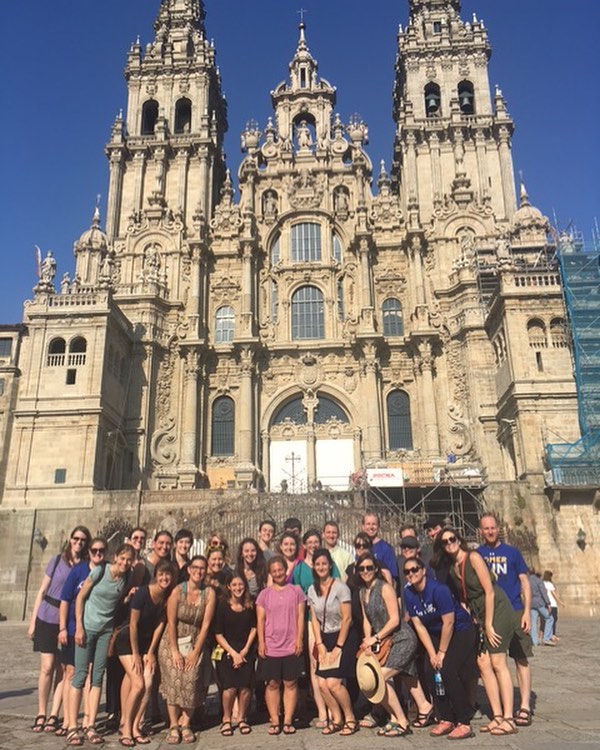
Young adult pilgrims from the Diocese of Fort Wayne-South Bend walked the famous Camino de Santiago in Spain in June. They are pictured in front of the cathedral in the town of Santiago de Compostela, which is believed to be the final resting place of St. James the Apostle. — All photos provided by Niki Wilkes
Turn group chat into group prayer
Horvath: There are people from all over the world on the Camino. I had a plethora of opportunities to turn my extroverted-self loose and strike up conversations with other pilgrims. It was easy to get lost in interesting and intimate conversations. Many of these connections provided an opportunity for group prayer (our group often prayed the rosary or a chaplet aloud together) and dialogues on faith. We also voiced the prayer requests we carried with us and prayed for each other. This outward exhibit of faith, as well as other conversations with pilgrims outside our group, inspired open dialogue about the Catholic faith with pilgrims who were less familiar with our traditions. The group chat turned toward God, and many times it was inspiring to see the Holy Spirit at work through these dialogues of faith with others. I found sharing my faith also helped me grow a little more in it.
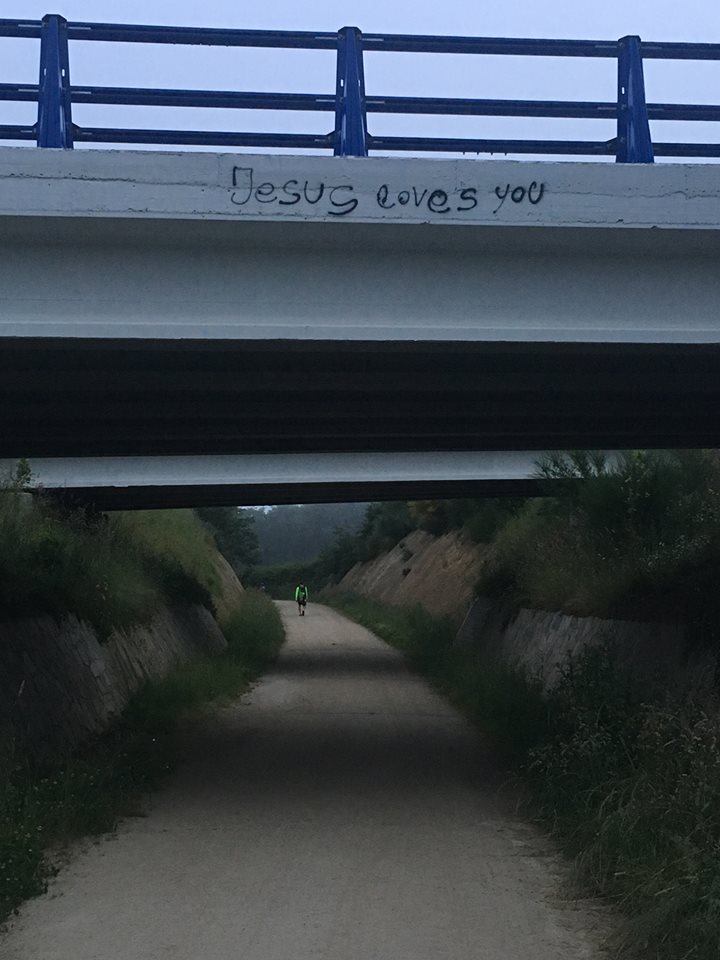 It’s OK to walk at different paces
It’s OK to walk at different paces
Wilkes: Whenever you passed someone or were being passed, it was common to exchange the phrase “buen camino,” which means “have a good journey.” It was a friendly way to acknowledge the person and encourage them. One thing I gathered from that is that you shouldn’t feel like you are judged by your pace. In our path towards God, you’ll have people who have been on the road their whole life and some only a few months. You’ll have people who are experiencing an outpouring of God’s grace which makes them speed by and others limping just to get to the next step. But as long as you get to the end, it doesn’t matter how fast you got there or how long you walked.
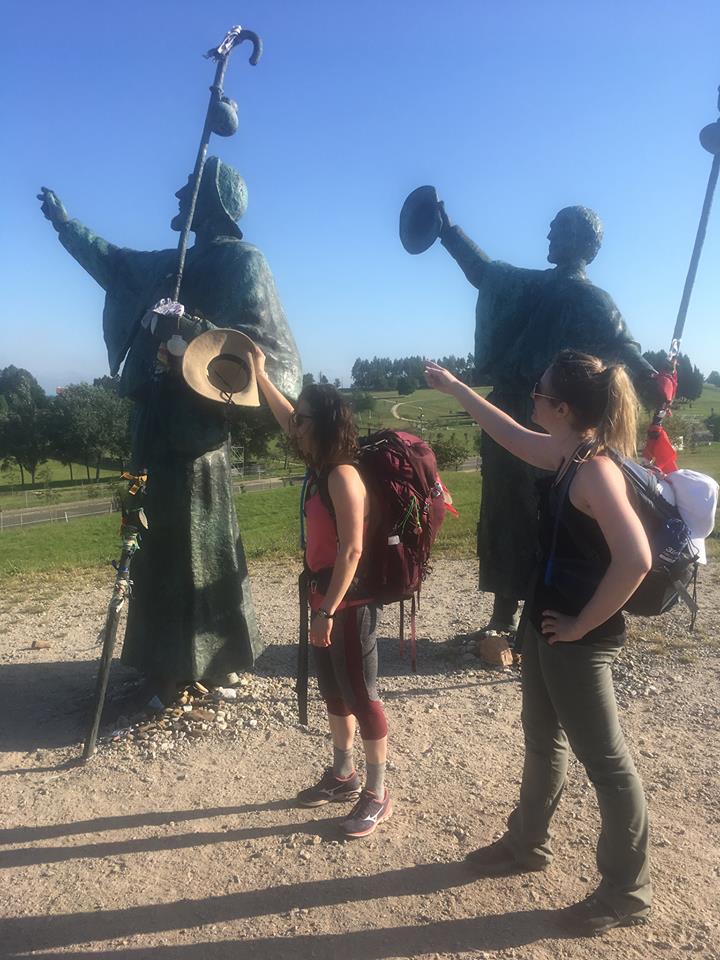
There’s no reason not to enjoy lighthearted moments along the Camino de Santiago, as two diocesan pilgrims demonstrate.
Take time for peaceful solitude
Horvath: On the Way, I often found myself wishing I had taken more time to grow inwardly. I like to talk so silence is difficult for me, but I’ve also found that it’s a necessity for my faith life. Our group as a whole started each early morning’s walk with 30 minutes of silence. By the third day of walking, those I was walking with felt comfortable enough to walk together in silence while praying on our own. This was such a blessing for all of us: We cherished moments when it was just us and God and the songbirds in the trees. Along the 118 kilometers, we were blessed with many opportunities to literally walk miles with God and take that time to get to know Him more in peaceful solitude that the beauty of God’s nature provided.
A pilgrimage like the Camino is unexpected. Pilgrims can plan and prepare as much or as little as possible, and the Camino will still be full of unforeseen blessings and challenges. It is truly a lesson in the old trope “let go and let God.” The Camino is also what each pilgrim makes of it, or allows God to make of it through them individually. There are enlightenments we came home with as well as effects and influences from the Camino that we have yet to discover. All of these have affected our journey on our ultimate pilgrimage towards God, especially as we return to our daily lives.
Buen camino.
The best news. Delivered to your inbox.
Subscribe to our mailing list today.


